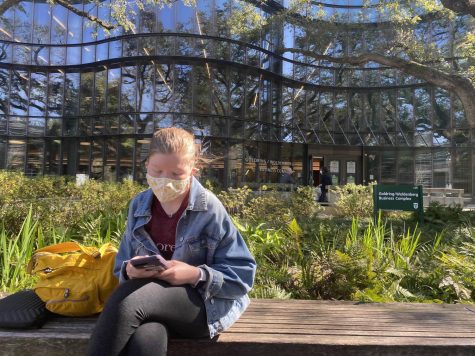
In March 2020, America’s health officials initiated pandemic lockdown protocols for a novel coronavirus. The 2019 Global Health Security Index ranked the United States number one in pandemic preparedness, convincing our government of our readiness to face this threat. The following months would sow doubt in any preparedness.
As of March 3, 2024, the World Health Organization data shows 775 million total cumulative cases of COVID-19 worldwide and 7 million deaths. Of these, 103 million cases and 1.2 million deaths occurred in the United States — the highest of any nation.
Author and historian John Barry wrote “The Great Influenza” in 2005, which inspired George Bush to create a $7 billion pandemic preparedness plan to prevent a disaster like the one seen in 1918. Since then, Barry’s involvement in White House conversations regarding infectious disease outbreaks informs federal policy.
Barry said the United States’s pandemic preparedness was “probably the worst performance in the world, given what the resources are that we had to work with …The system itself was pathetic.”
Barry said that Donald Trump’s leadership during the pandemic greatly contributed to our failed response efforts and exacerbated the effects of the COVID-19 pandemic on American citizens.
“Well, there’s always a question, is it a system failure? Or is it a failure of leadership? Both failed,” Barry said. “But we could have done so much better with decent leadership.”
“I’m in the Tulane [Athletics Hall of Fame], and leadership matters,” said Barry, who coached the Tulane football team before his writing career and led them to victory over LSU in 1973. “I strongly believe that you can take a terrible system and make it effective if you have great leadership. By the same token, you can take a great system and without leadership, it’s gonna fall apart.”
As COVID-19 spread, Barry advised on pandemic response to the Wolverines: a top-secret group of current and former White House employees, government officials and scientists. The Wolverines knew the United States was unprepared for COVID-19 months before the government implemented lockdowns and they wanted to do everything possible to protect America’s population.
“I wasn’t an original Wolverine,” Barry said. “They all knew me and asked me to come.”
Michael Lewis, the award-winning author of “Moneyball,” “The Big Short” and “The Blind Side,” wrote about the Wolverines in his 2021 book “The Premonition: A Pandemic Story.”
Lewis said if the Wolverines “had been the voices in the White House press room and they had been allowed to run it, people would have understood why we were doing what we were doing.”
“The Premonition” tells the story of Charity Dean, a Tulane medical school alum and the assistant director of the California Public Health Department during the COVID-19 outbreak. Dean worked alongside the Wolverines to provide pandemic response advice to other states.
Lewis said Dean is “a natural wartime leader.” He emphasized the need for leadership and effective public communication when managing an outbreak.
“It doesn’t matter what you know. If you can’t get people to get their kids vaccinated against measles, it doesn’t matter that you have the vaccine,” Lewis said.
Lewis attributes America’s failures in pandemic response to the politicization of federal agencies like the CDC. As response efforts decentralized in local and state health departments, COVID-19’s threat grew, he said.
“Even if Biden is in the White House, you’re gonna have half the state saying, ‘We’re not listening to that [expletive]. We learned not to listen,’” Lewis said. “It’s going to require some feeling of existential risk for people to get scared enough to actually behave in a rational way about all this, and forget their biases, their politics, their whatever. And that’s terrifying. Because what if a million people dead doesn’t do it?”
“Socially, we are so much less prepared than we were before,” Lewis said. “Socially, we’re prepared for chaos.”


Leave a Comment